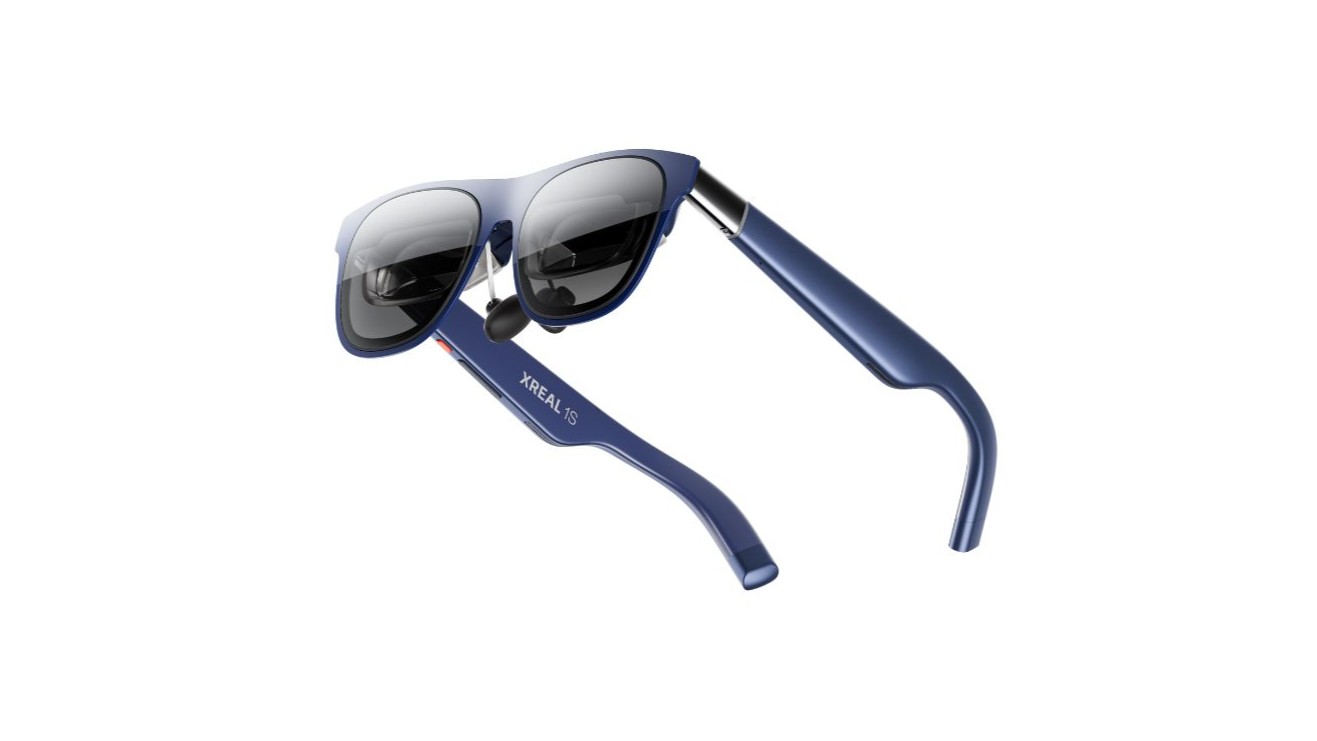Google Pixel 5 vs. Samsung Galaxy S20 FE: Which should you buy?
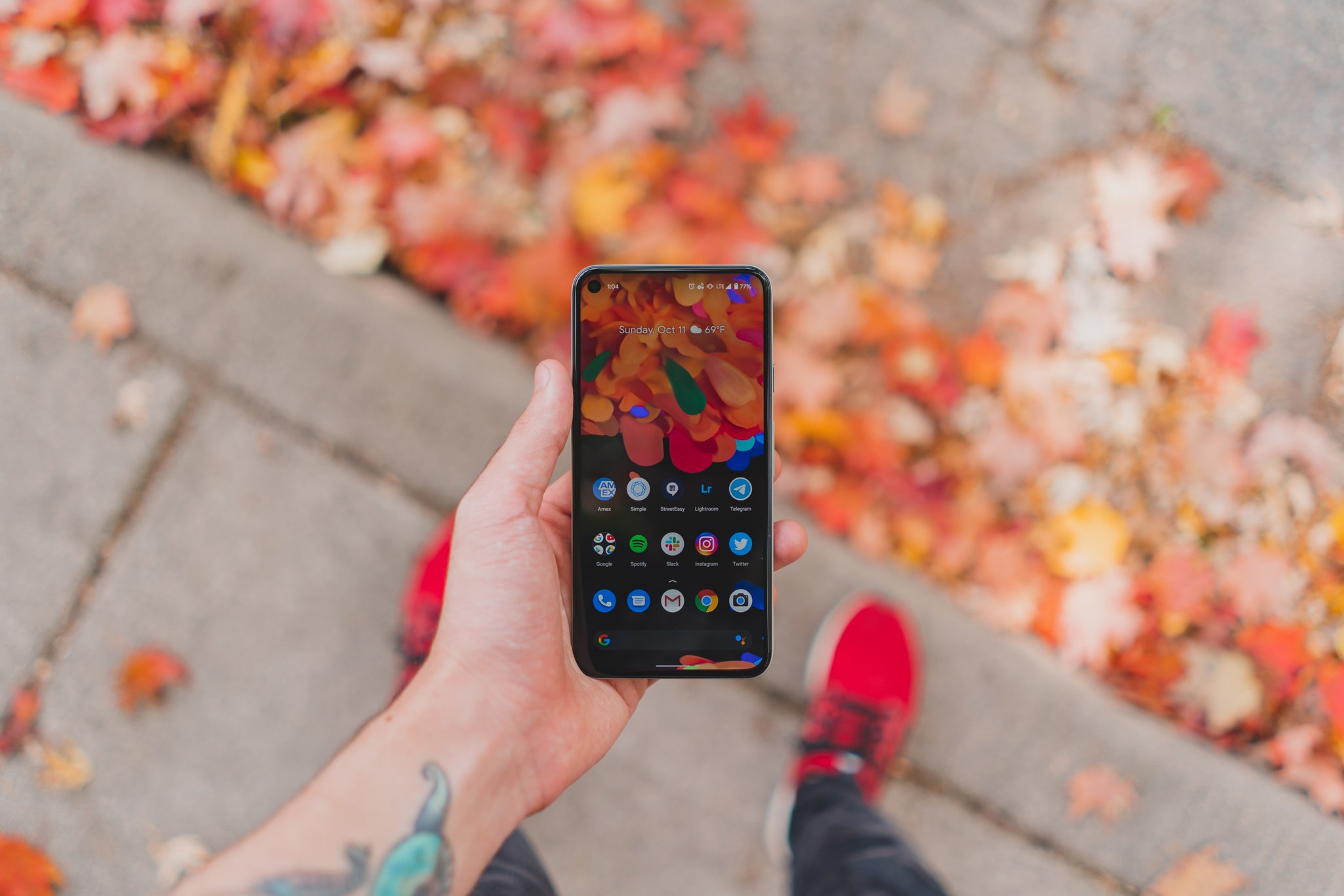
Google Pixel 5
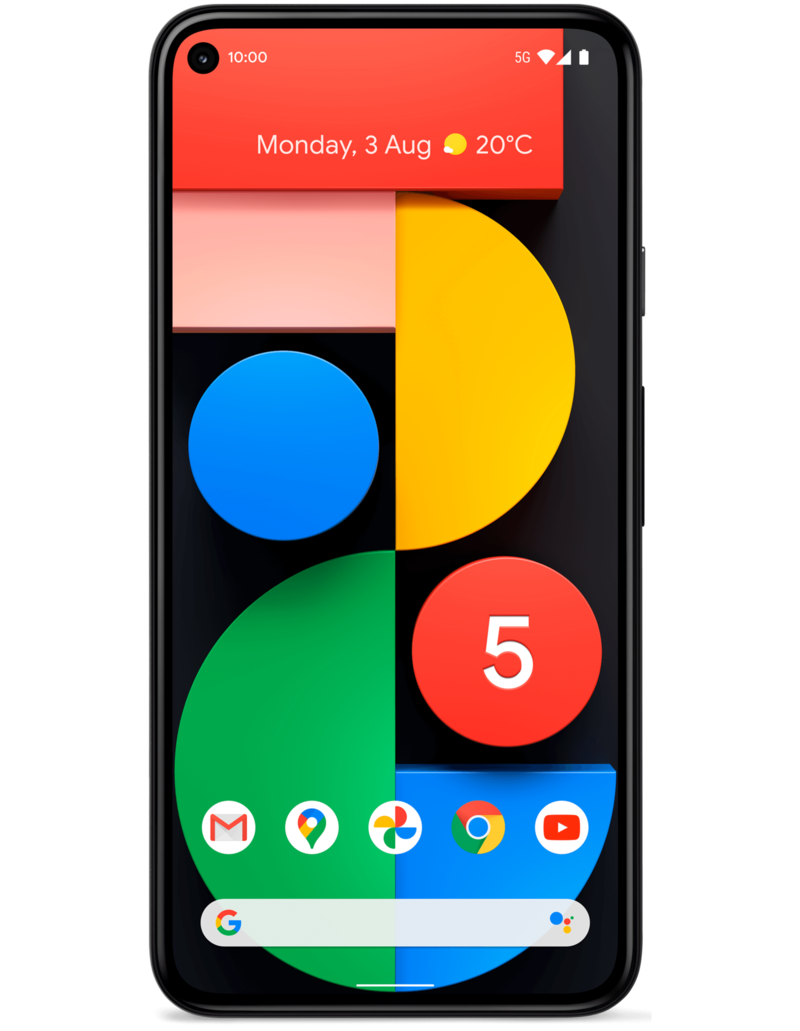
The Pixel 5 offers the purest possible Android experience, with clean Android 11 software and some of the best cameras around. It's the first in line for new versions of Android and comes in a small form factor with all-day battery life.
Google Pixel 5
Point and shoot
Samsung Galaxy S20 FE
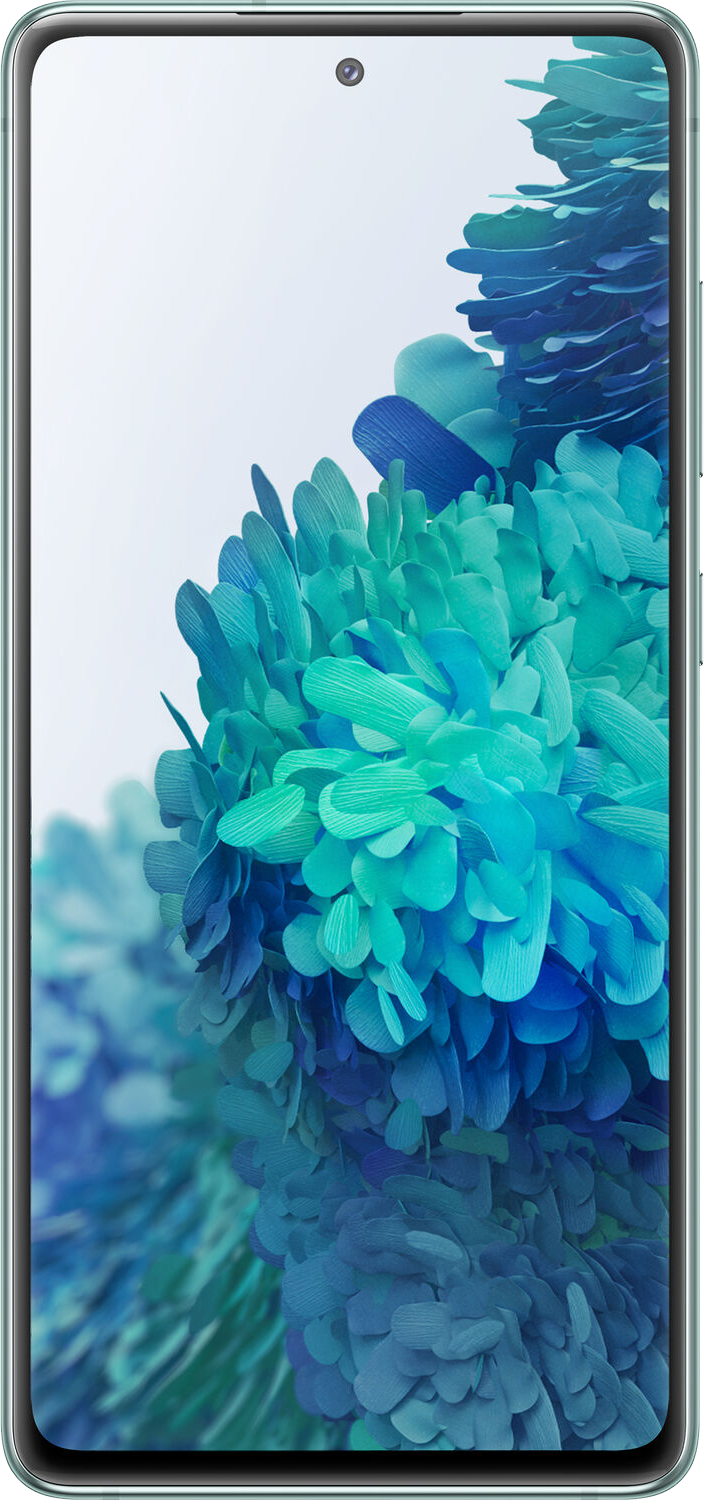
The Galaxy S20 FE has modern specs and amenities in a plastic body that helps bring the price down. You get a gorgeous flat display, along with top-end cameras and years of guaranteed software support.
Samsung Galaxy S20 FE
Powerfully versatile
The Pixel 5 and Galaxy S20 FE are two of the most exciting phones of the year — not because they offer outlandish or experimental features but because they bring the amenities typically reserved for flagship devices to a more affordable price without making any major compromises. These are two of the best Android phones around, with high refresh rate displays and their own sets of excellent cameras, but which is best for you?
Google Pixel 5 vs. Samsung Galaxy S20 FE Pricing & release date
The Pixel 5 launched on Oct. 15, 2020, with a single configuration featuring 128GB of non-expandable UFS 2.1 storage and 8GB of RAM. In the U.S., it's available either unlocked or through Verizon for $700 in either Just Black or Sorta Sage.
Meanwhile, the S20 FE launched on Oct. 2, 2020 at the same $700 price point, initially with just one configuration with 128GB of UFS 3.1 expandable storage and 6GB of RAM, though a subsequent variant has been released featuring double the storage at 256GB. The S20 FE is available in Cloud Navy, Cloud Lavender, Cloud Mint, Cloud Red, Cloud White, and Cloud Orange — though the 256GB model is only available in Cloud Navy.
Google Pixel 5 vs Samsung Galaxy S20 FE: Great cameras and longterm software support
As far as hardware goes, one of the more interesting aspects of these phones is that neither features the commonplace glass back. Instead, the Pixel 5 is made of aluminum, then covered in a bio-resin that makes it feel almost more like plastic, while the Galaxy S20 FE fully embraces plastic with a polycarbonate back. Both feature bi-directional wireless charging (a small portion of the Pixel 5's backing is made of plastic underneath the bio-resin to allow for induction), and the S20 FE bears an aluminum frame for improved durability.
Both phones feel great in-hand, despite forgoing the standard glass back and curved screen.
Neither phone has the most exciting design, but both phones have a flat display with thin bezels and a hole punch camera cutout. The Pixel 5 features a rear-mounted fingerprint sensor just below the camera housing, while the S20 FE relies instead on an in-display sensor. This all comes down to preference, but I far prefer the former, which pulls double duty as a gesture pad that allows you to instantly call down your notification shade.
Get the latest news from Android Central, your trusted companion in the world of Android
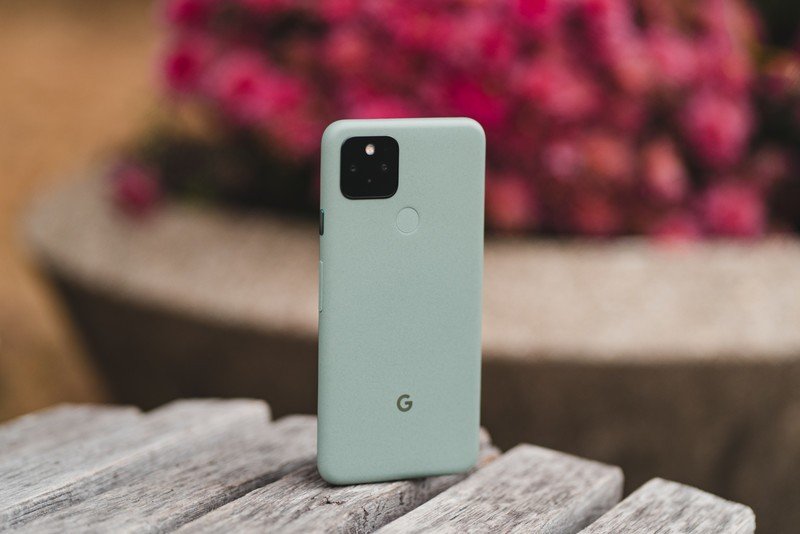
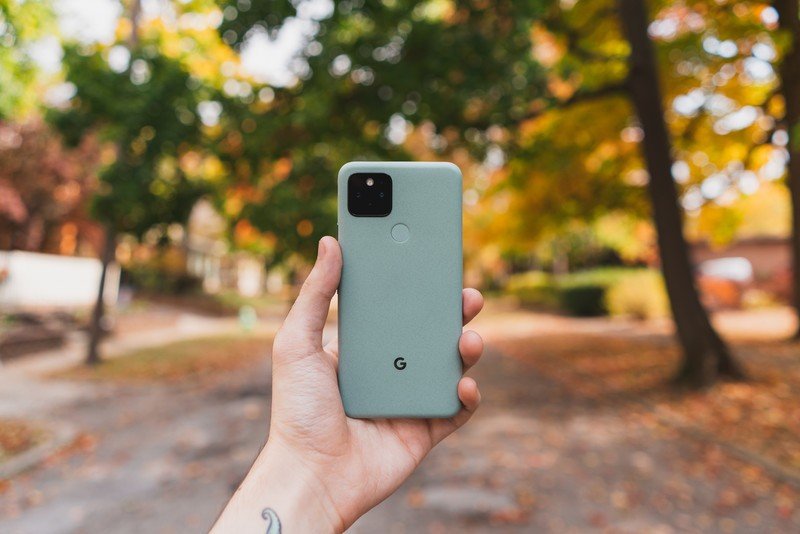
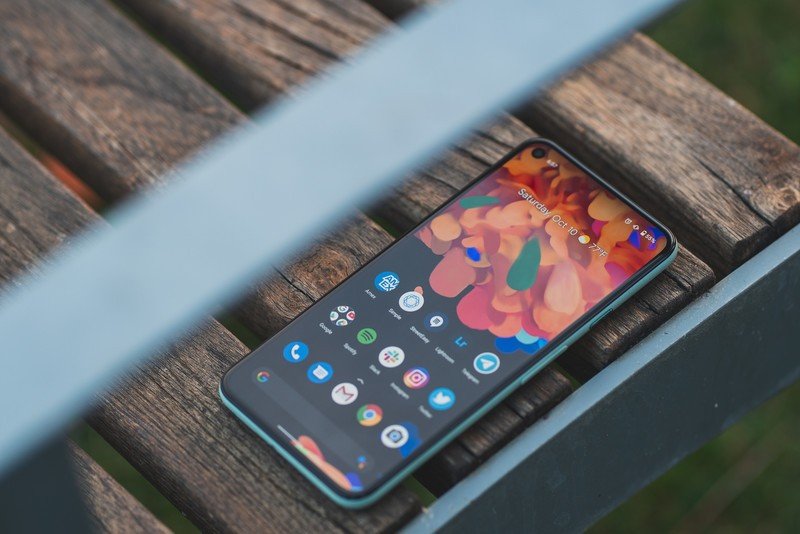
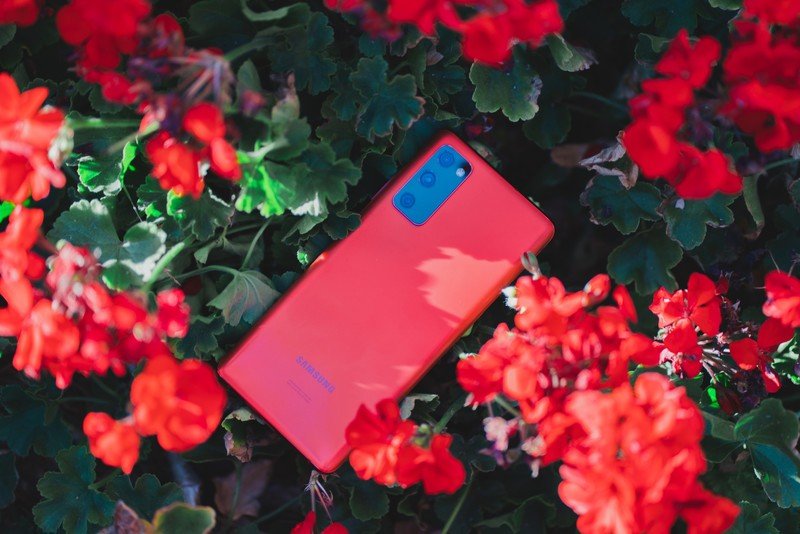
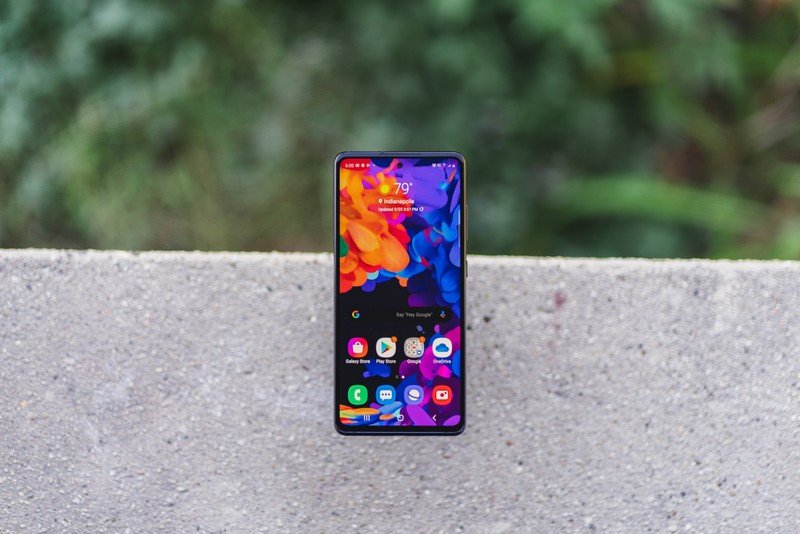
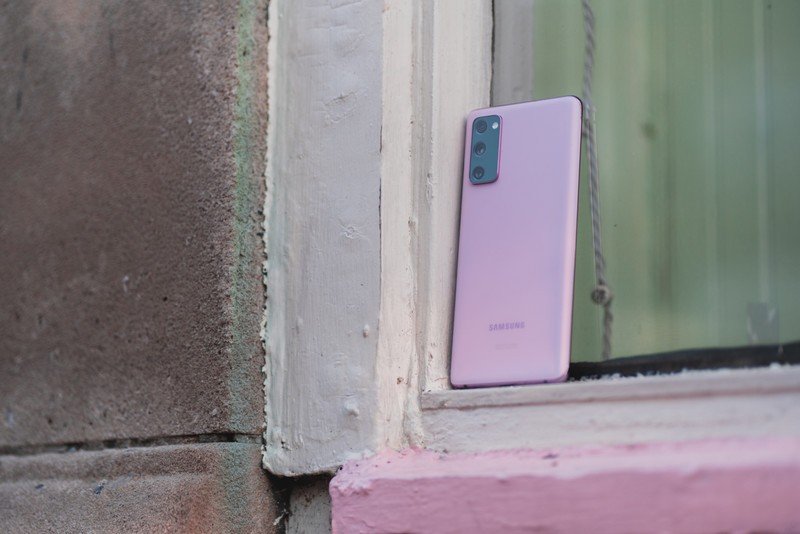
I really enjoy both phones' in-hand feel, but one of the biggest physical differences between the two is their respective sizes. The Pixel 5 is a much smaller device, which could be a good or bad thing depending on your preferences.
Internally, the S20 FE's Snapdragon 865 is more powerful than the mid-range Snapdragon 765G in the Pixel 5, though the Pixel edges ahead slightly with 8GB of RAM versus the S20 FE's 6. Both come with 128GB of baseline storage, though Samsung eventually added a 256GB variant of the S20 FE, and either storage tier boasts microSD expandability. Of course, each phone also features 5G connectivity, though only the Pixel 5 supports millimeter wave on all variants — to use the S20 FE on mmWave, you'll need to specifically purchase the Verizon-based Galaxy S20 FE UW.
| Category | Pixel 5 | Galaxy S20 FE |
|---|---|---|
| Operating System | Android 11 | Android 10 |
| Display | 6.0 inches, 19.5:9 aspect ratio, 2340x1080 (432 ppi) resolution, OLED | 6.5 inches, 20:9 aspect ratio, 2400x1080 (407 ppi) resolution, Super AMOLED |
| Processor | Snapdragon 765G | Snapdragon 865 |
| Memory | 8GB RAM | 6GB RAM |
| Storage | 128GB | 128/256GB |
| Expandable Storage | No | Yes (up to 1TB) |
| Rear Camera | 12.2MP, ƒ/1.7, 1.4μm (wide) 16MP, ƒ/2.2, 1.0μm (ultra-wide) | 12MP, ƒ/1.8, 1.8μm (wide) 8MP, ƒ/2.4, 1.0μm (telephoto) 12MP, ƒ/2.2, 1.12μm (ultra-wide) |
| Front Camera | 8MP, ƒ/2.0, 1.12μm | 32MP, ƒ/2.2, 0.8μm |
| Battery | 4000mAh | 4500mAh |
| Water Resistance | IP68 | IP68 |
| Dimensions | 144.7 x 70.4 x 8.0mm | 159.8 x 74.5 x 8.4mm |
| Weight | 151g | 190g |
| Colors | Just Black, Sorta Sage | Cloud Navy, Cloud Lavender, Cloud Mint, Cloud Red, Cloud White, Cloud Orange |
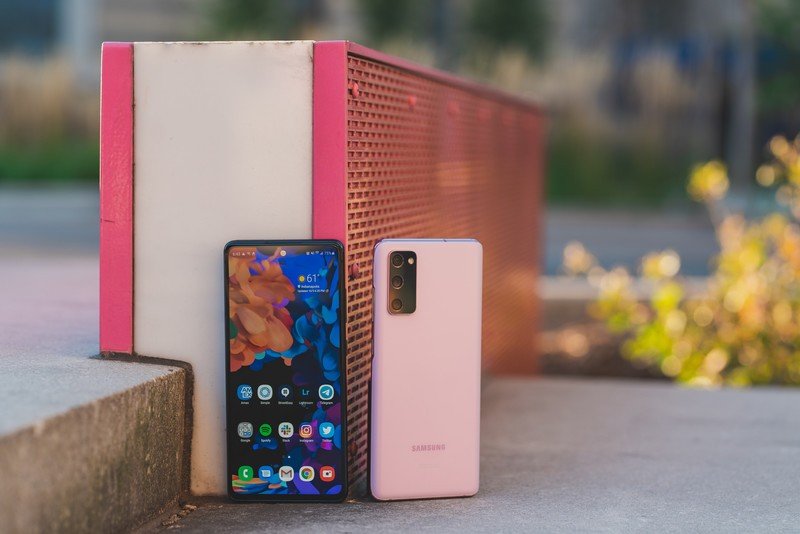
The software experience is quite different on each phone. The Pixel 5 runs Android 11 out of the box, with few frills or software add-ons, both good and bad. Android 11 is incredibly refined, with categorized notifications and an emphasis on smart home management in the power menu, though it lacks some of the more powerful features of Samsung's One UI. One of the S20 FE's more unique features is Wireless DeX, which allows you to wirelessly cast your phone's display onto a Miracast-compatible TV, and even use it in conjunction with a keyboard and mouse for a desktop-like experience in a pinch.
Two great camera systems with very different shooting experiences.
There's no right or wrong choice here; both phones have excellent software, each with its own set of pros and cons. The important thing is that both Google and Samsung have committed their phones to at least three years of continued software support. That doesn't mean they'll get major platform updates at the same time (this remains one of the biggest perks of using a Pixel), but each will at the very least receive regular security patches until some time in 2023.
While both phones feature outstanding camera systems, they offer very different shooting experiences and capabilities. The Pixel line famously has some of the industry's best imaging prowess, with the Pixel 5 taking excellent photos in virtually any lighting condition thanks to intelligent features like Night Sight and Auto HDR. Its colors are typically warm, and exposure is balanced and consistent. You also get an ultra-wide lens for the first time on a Pixel, though the removal of last year's telephoto lens means that zoom shots aren't quite as sharp as they once were.

The Galaxy S20 FE is nearly the polar opposite. Its colors are extremely vivid, sometimes to its detriment, and Samsung's image processing notoriously overexposes highlights, ramps up shadow details, and softens faces. The S20 FE takes fantastic photos, but they aren't quite as consistent or neutral as on the Pixel. On the other hand, you get not only an ultra-wide lens but also a 3X telephoto lens that can reach all the way up to 30X using Samsung's Hybrid Optic Zoom technology. this makes the S20 FE a far more versatile shooter, and as a bonus, you get comprehensive manual shooting controls.
There are a lot of factors to consider between the two phones, but the good news is that both nail the fundamentals with great displays, long battery life, and long software support. If cameras are a high priority for you, the Pixel 5 will deliver more consistently great and balanced photos, while the S20 FE has a more versatile system for capturing different kinds of photos or taking matters into your own hands with manual controls.

The most consistent cameras you'll find
The Pixel 5 offers the purest possible Android experience, with clean Android 11 software and some of the best cameras around. It's the first in line for new versions of Android and comes in a small form factor with all-day battery life.

Hayato was a product reviewer and video editor for Android Central.
